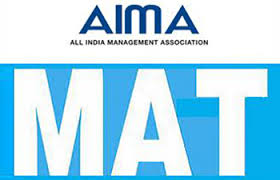When bright students look around India for a place to study for an advanced degree, they find few top-quality programmes
Post-graduate students from India are increasingly choosing to study abroad. The U.S. Council of Graduate Schools’ new statistics show that offers of admission to Indian post-graduate students are up 25 per cent for 2013-14 from the previous year, compared to a 9 per cent increase for all countries. Numbers from China showed no increase compared to last year. While these statistics are only for the U.S., India’s most popular destination, it is likely that other countries such as Germany, Canada and the U.K. are also seeing significant increases from India.
Reasons for departure
Why? There are, no doubt, many reasons why Indians are choosing to study abroad. Two of these factors are troubling forIndia’s universities and for prospects for the high-tech economy. When bright students look around India for a place to study for an advanced degree, they find few top-quality programmes. In the social sciences and humanities, there are a small number of respectable departments, but absolutely none that are considered by international experts as in the top class of academic programmes. In the hard sciences, biotechnology, and related fields, the situation is more favourable with a few institutions such as the Indian Institutes of Technology, the All-India Institute of Medical Sciences, the Tata Institute of Fundamental Research and some others, despite limited acknowledgement from abroad, being internationally competitive by most measures. But the numbers of students who can be served by these schools is quite limited.
Thus, if a bright Indian wants to study for a doctorate or even a master’s degree at a top department or university in most fields, he or she is forced to study overseas. Further, a degree from a top foreign university tends to be valued more in the Indian job market than a local degree — a perception based not only on snobbery but also on facts. While master’s degrees can be quite costly in the U.S., the U.K., Australia, and elsewhere, doctorates are in fact quite inexpensive because of the likelihood of securing a research or teaching fellowship or assistantship that pays for most or all of the costs.
Not only are overseas programmes and departments more prestigious, they also have far better facilities, laboratories and a more favourable culture of research. Top faculty members are often more accessible and it is easier to become affiliated with a laboratory or institute. Academic politics exists everywhere, and Indians may suffer from occasional discrimination abroad, but overall academic conditions are likely to be better than at home.
Step toward emigration
Finally, studying abroad is often seen as the first step toward emigration. Of course, few students will admit this, but statistics show that a very large proportion of students from India — and also from China, South Korea and other Asian countries — choose to stay in the U.S. following the completion of doctoral degrees. Data from the U.S. National Science Foundation’s Survey of Earned Doctorates show that 80 per cent or more of students who complete their PhDs in the U.S. from India and some other Asian countries remain in the U.S.
Since everyone who completes a doctorate is required to fill the survey, the data is quite accurate. Further, the U.S. and other host nations are making it easier for foreign doctoral holders to remain — boosting their “stay rates”— and in this way contribute to the brain drain.
The reasons for deciding not to return to India are varied and not hard to discern. Better salaries and facilities abroad, easier access to research funds, working on cutting-edge topics and many others are part of the mix. And while some are lured back to India later in their careers, the numbers are small. Once established overseas, either in a university or in the research or corporate sectors, it is difficult to return.
It may be relevant to note that the rate of Chinese post-graduate students going abroad is flat after a number of years of steady increases. A likely explanation, with relevance for India, is that China has invested heavily in its top-tier universities and now has significant quality and capacity in most academic fields for post-graduate study. Chinese students are no longer obliged to go abroad for high-quality programmes, with an apparent trend toward choosing to remain at home.
Solutions
There is no short-term solution to this problem for india.The onlyy remedy is to build up high-quality capacity in key disciplines at national institutions so that a greater number of Indian students can obtain excellent training at home. This means significant investment over time, and careful choices about where to invest since all universities cannot be top research universities.
It also means significant changes in India’s academic culture to ensure that meritocracy operates at all levels. China’s top universities are beginning to show up in the mid-levels of the global rankings, an indication that they are having some success. India, so far, is nowhere to be seen.
